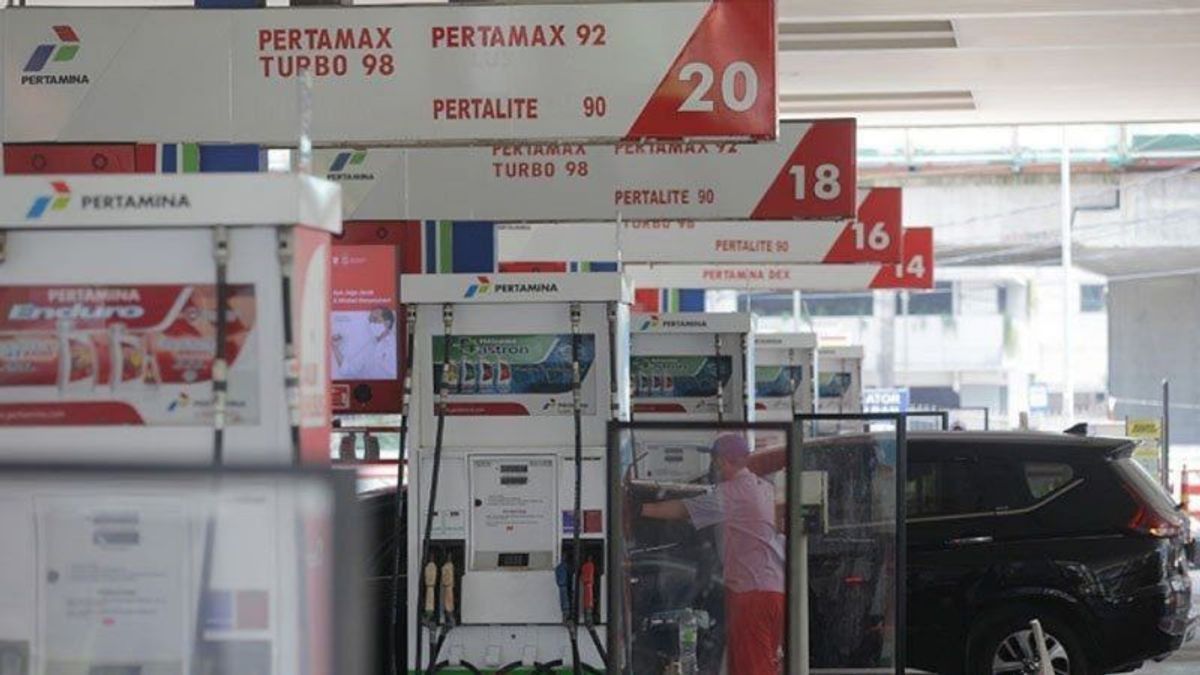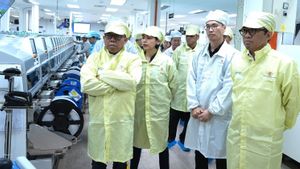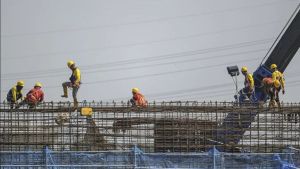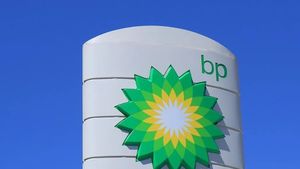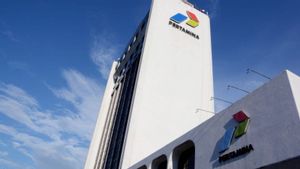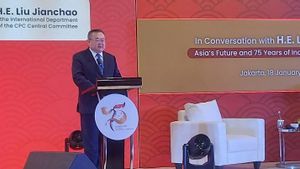JAKARTA - The targeted distribution of fuel oil (BBM) subsidies is considered to be an effective solution to reduce the financial burden on the state due to the increase in crude oil prices, which has also increased the price of fuel and LPG in the market.
Special Staff to the Minister of Finance for Strategic Communication Yustinus Prastowo said subsidies should be given to people in need, not to products (goods) so that they are more targeted.
This requires a long process related to a qualified database so that subsidies are also more efficient.
"That's speaking in a normal context. Right now the situation is not normal," Yustinus said as quoted by Antara, Wednesday, June 29.
Besides Yustinus, other speakers were also present as BPH Migas Committee Member Saleh Abdurrahman, Regional Marketing Director of PT Pertamina Patra Niaga Mars Ega Legowo Putra and BUMN observer Toto Pranoto.
According to Yustinus, until the end of 2021 it was never predicted that a war would occur between Russia and Ukraine.
In addition, there will be no sharp price spikes related to commodities including oil and the dynamics of monetary policy in the United States.
"This is the background why the government and the DPR maintain that subsidies and compensation in the context of people's safety are the highest law. Apart from discussions and others, we focus on protecting the community, which is why the state budget is being sought to be a shock absorber," he said.
This year, the allocation of subsidies is assuming an ICP price of 100 US dollars per barrel of Rp. 74.9 trillion and compensation of Rp. 324.5 trillion.
Meanwhile, what will be paid this year is the Rp 275 trillion budget allocation that will depend on global price developments.
If the ICP price is above 100 US dollars per barrel or below, continued Yustinus, subsidies and compensation will be adjusted accordingly.
"In the short term, in principle, the government wants to support it," he said.
BPH Migas Committee member Saleh Abdurahman projects that this year's Solar and Pertalite quota will run out in September or October 2022 if no action is taken.
Based on data from BPH Migas, as of June 20, 2022, the realization of diesel distribution reached 51.24 percent of this year's quota of 15.1 million kiloliters (KL).
Meanwhile, the realization of Pertalite distribution reached 57.56 percent of the previous quota of 23.05 million KL.
One way to control the distribution of subsidized fuel and assignments is Solar and Pertalite by utilizing technology through the MyPertamina application.
This is done because the government and Pertamina are still consistent in maintaining the price of diesel fuel and Pertalite and 3 kg LPG does not increase in the midst of global crude oil prices which continue to stay above 110 US dollars per barrel.
Saleh hopes that the system built by Pertamina through MyPertamina can be a way out to be able to regulate the distribution of subsidies. BPH Migas will oversee the MyPertamina system.
"If someone has filled up today, for example 60 liters, he can't go to other gas stations so that consumers are really under control. We also issue a recommendation letter for certain types of diesel fuel (JBT) so that there is strong supervision," he said.
Meanwhile, Regional Marketing Director of PT Pertamina Patra Niaga Mars Ega Legowo Putra said, Pertamina as an assignment business entity has a corporate responsibility to carry out its duties properly.
According to Ega, July 1, 2022 is the registration stage for low-income people who will use Pertalite and Solar, not a limitation. The data will be coordinated for the initial stage, there is no verification yet.
Pertamina is still matching the uploads of STNK, vehicle number plates, photos of vehicles, and the Resident Identity Number (NIK) uploaded by residents.
"Later, we will match whether this vehicle and others are correct. We haven't validated the data yet, or we haven't just gathered the data if it's suitable, approve it later, the public will get a QR Code via email, "explained Ega.
According to BUMN observer Toto Pranoto, the large subsidy will not only affect the state but also Pertamina. The increase in global oil prices had a significant impact on Pertamina's cost of goods sold so that it experienced a significant increase of 41 percent.
"From Pertamina's point of view, the company's PSO receivables are also relatively large, namely Rp5.87 trillion throughout 2021 so that the subsidy reduction initiative can reduce PSO's receivables," said Toto.
The English, Chinese, Japanese, Arabic, and French versions are automatically generated by the AI. So there may still be inaccuracies in translating, please always see Indonesian as our main language. (system supported by DigitalSiber.id)
